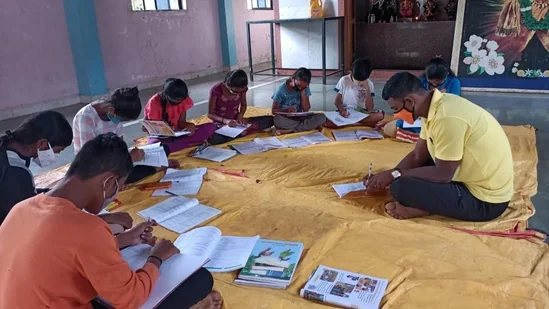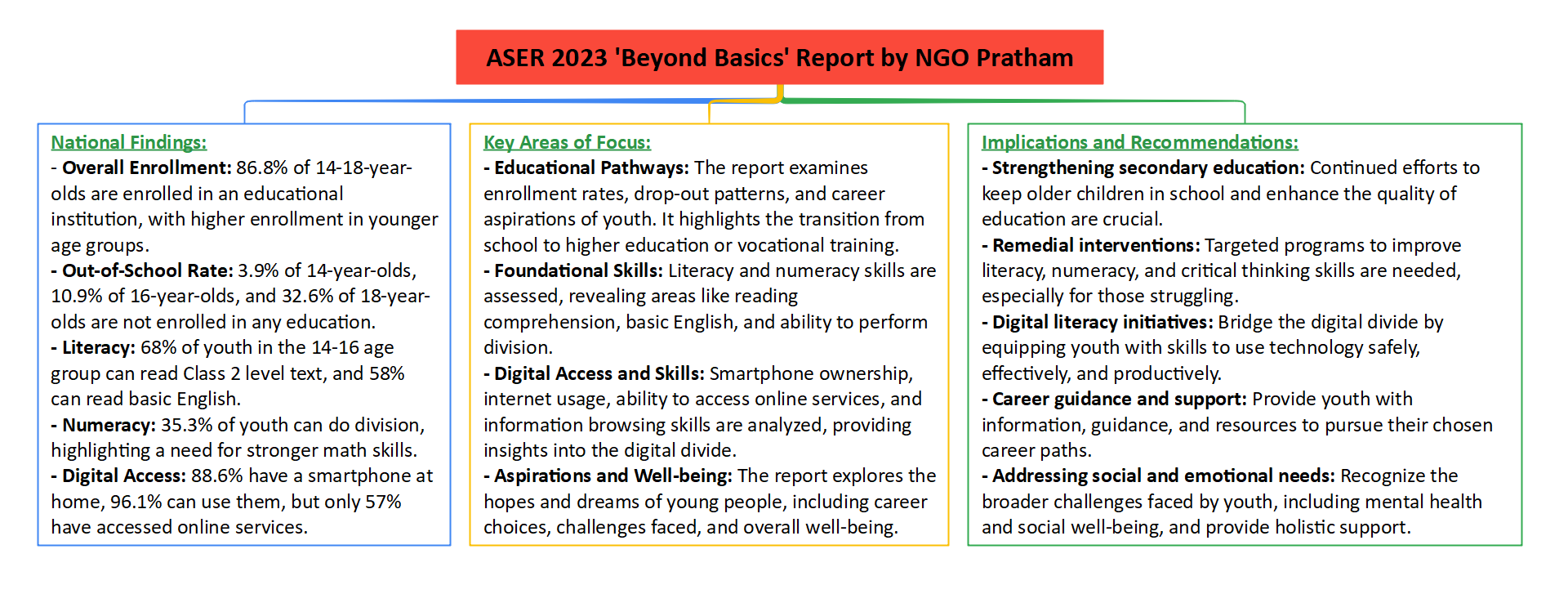Free Courses Sale ends Soon, Get It Now


Free Courses Sale ends Soon, Get It Now



Copyright infringement not intended
Picture Courtesy: www.hindustantimes.com
Context: The Annual Status of Education Report-2023 (ASER) 'Beyond Basics' conducted by the non-profit organization Pratham provides insights into the educational status and digital access of 14 to 18-year-old youth.
Key Findings of the Report
Survey Coverage
Literacy and Numeracy Skills
English Reading Skills by Gender
Aspirations and Education
Gendered Work Aspirations
Vocational Training

Conclusion
Must Read Articles:
ASER REPORT: https://www.iasgyan.in/daily-current-affairs/aser-report-32
|
PRACTICE QUESTION Q. How has the education system in India evolved over the years, and what are the current challenges and potential solutions to ensure equitable access to quality education across different regions and socio-economic backgrounds? |
© 2024 iasgyan. All right reserved